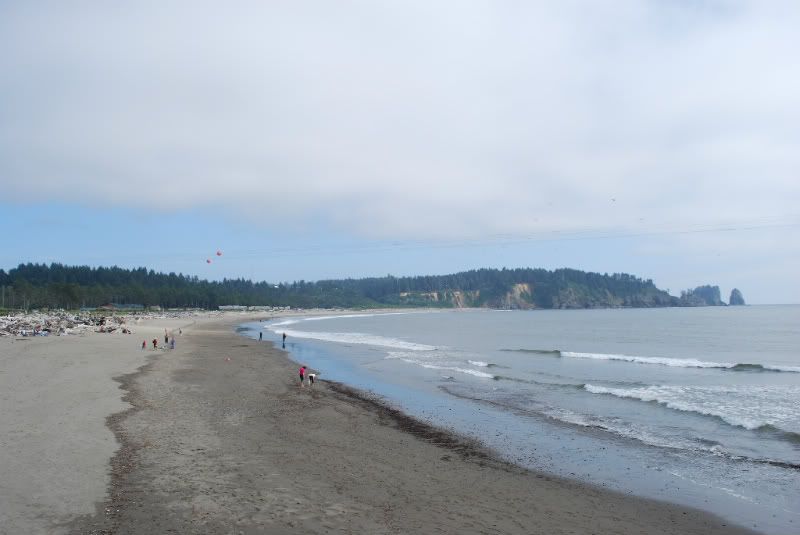By BECKY BOHRER, Associated Press January 7, 2012
JUNEAU, Alaska (AP) - Negligent homicide and other charges against the sole survivor of a deadly 2010 Coast Guard helicopter crash should be dismissed, an investigating officer has determined.
Capt. Andrew Norris, in recommendations obtained by The Associated Press, said he doesn't conclude that Lt. Lance Leone was faultless during the flight. But Norris said the charges against him - negligent homicide, dereliction of duty and destroying military property - focus on alleged navigational failures by Leone and tie those to the destruction of a helicopter and death of two crew members.
"It is in this focus, and in making this tie, that I believe the charged offenses fail," he wrote.
Norris' recommendations will be reviewed by the Coast Guard commander in Alaska, Rear Admiral Thomas Ostebo. He is not bound by them.
Leone, who has earned a long list of Coast Guard awards and accolades, including commendation medals, was co-pilot of the MH-60 Jayhawk helicopter flying from Astoria, Ore., to the crew's base in Sitka, Alaska, when it hit an unmarked span of low-hanging wires and crashed off LaPush, Wash., in July 2010, killing three.
The negligent homicide charges were related to the deaths of crew members Brett Banks and Adam C. Hoke. Leone was not charged in the death of the pilot, Lt. Sean Krueger.
Prosecutors, during a military hearing last month, argued that Leone did not fulfill his duties, which included acting as a navigator and safety officer, and should face court martial. Leone's civilian defense attorney, John Smith, countered that the Coast Guard had "set a trap" by not marking the power lines that the aircraft hit.
The crash's lead investigator called the lines a contributing factor but also said there was no reason for the aircraft to be flying so low. The prosecution maintained there was no requirement that the lines be marked because they were below 200 feet.
The wires, the site of at least two other accidents, were the responsibility of the Coast Guard. They sloped from 190 feet to about 36 feet. At the time of the 2010 crash, marking balls were pooled near a pole, above land, at the low point, not along the span. The helicopter hit at about 114 feet, according to testimony and the court record.
Smith said Leone had programmed the helicopter on a track that would have missed the wires, but Krueger deviated from that, dropping in altitude as he flew over a Coast Guard vessel in the channel. Seconds later, the aircraft struck the wires.
Norris said he doesn't believe that a reasonable navigator would have identified, through study of charts, hazards reasonably close by that would have posed no threat to the helicopter along its planned route.
Norris said Leone and Krueger discussed navigational aspects of a feature about 10 minutes before the crash, making clear, he said, that Leone was consulting a navigational chart or charts at the time. Referencing the hearing transcript, Norris said Krueger's plan to deviate from the flight plan was unexpected and announced. Leone didn't provide verbal navigational information at that point.
"As it is inconceivable that the accused would have failed to have provided such warnings had he known of the hazard, it is reasonable to conclude that the accused did not know of, or discover the presence of, the wires before the helicopter flew into them," Norris said.
Norris also investigated whether Leone was derelict in his duty for not advising Krueger that they were flying too low at certain points in the flight and recommending a rise in altitude. This arose during the hearing, and prosecutors said they did not seek the new charge.
Norris, in his report, said he believes "reasonable grounds do exist" to believe Leone "committed the crime of negligent dereliction of duty" for not questioning or speaking up about the altitude. "Proceeding in accordance with this theory is the only way I can see to causally link the accused's derelictions with the crash and deaths," Norris wrote.
"However," he said, "I do not believe that the government could prove this link to a reasonable fact-finder, as it requires speculations and suppositions as to what Lt. Krueger may or may not have done in response to such advisements, if given, that are simply unknowable."
In testimony, the commanding officer of Air Station Sitka, Cmdr. William Cameron, said that if anything would have stopped the crash, it would have been stronger cockpit communication skills. But Cameron also said he didn't think Krueger would have listened had Leone spoken up about the drop in altitude, saying he believed Krueger, who also had a list of military service awards, was comfortable in what he was doing.
Cameron also said he was prepared to recommend that allegations against Leone be dropped, but said that decision was "somewhat overrun by events." In meeting with the new Coast Guard commander in Alaska, Ostebo, in August, he said Ostebo suggested he had "gotten too close emotionally to Lt. Leone or something like that,"' and lost objectivity. Cameron then outlined his reasoning in a memo.

